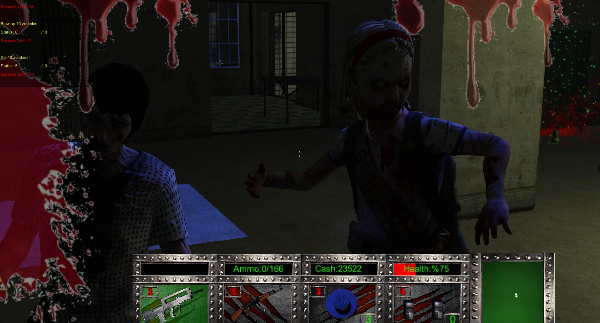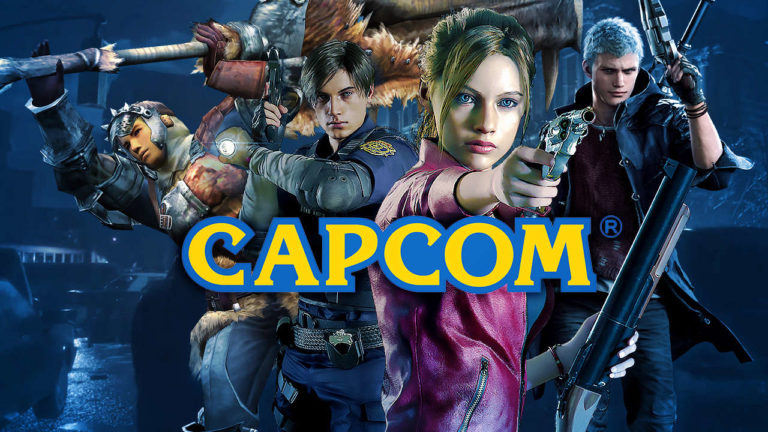
Lately we have seen a number of debacles that involved indie developers putting themselves in a bad spotlight with questionable statements and actions. The Slaughtering Grounds creator went on YouTube to ridicule journalist and internet sensation Jim Sterling after a negative review, Mike Maulbeck from Code Avarice threatened to kill Gabe Newell, and in November last year we saw the team behind Dark Matter shamelessly release a shortened and unfinished product on digital platforms. That is just limiting it to horror and horror-themed games that we covered, if you look back on indie gaming as a whole you get people like Phil Fish and the many shady studios issuing false DMCA claims against YouTubers. Why is it that these small studios seem to mess up so often?
When you think about indie games, it’s likely that an image of friends getting together to develop a game they are passionate about comes up. It’s the opposite of giant corporations where hundreds of people melt together to produce games that a board of directors have greenlit because they are deemed safe and likely to turn a profit. Indie developers are like rebels that will use gameplay mechanics, genres and themes deemed “dead” or “too risky” by others to bring us experiences that are unique and fresh.
Still, that image is a bit skewed, since all you have to do to be an “indie developer” is put out a product you designed; passion and originality don’t have to be included in that. Game design in this day and age is easier than ever before, with intuitive engines, tutorials and assets available everywhere, sometimes even for free. Even with no funds and no knowledge of game development, it’s possible to cobble together something and be legally allowed to distribute it.

While this may sound like a dream for creative individuals, it also means bootlegs, rip-offs and scams are easy to create. While it may be obvious to most people when a developer blatantly rips off the latest mobile hit, we have seen a lot of games release on Steam that consist of standard Unity or RPG Maker assets, broken mechanics, and unfinished level-design. Usually these games tricked their way past the Greenlight system or bought votes by promising free keys for all voters. Then the game releases on Steam and attracts curious day 1 purchasers and Let’s Players, and that may bring in enough money to cover whatever minor expenses the “team” suffered.
Many of the games we heard about on YouTube, stuff like Air Control and Earth Year 2066, were made for cynical reasons. The former is an example of easily-designed games cashing in on a fad (weird simulators in the wake of Goat Simulator) and the latter is just a cheaply-designed, broken mess that sought to cash in before being discovered. Steam rarely steps in to stop products like this and there is no refund system in place to help gamers that fall for them, so the platform is perfect for titles like this.
Along with the poor quality of their games comes their horrendous treatment of criticism, censoring the forums and sending out DMCA notices to YouTubers. In my eyes – and I haven’t spoken with any developer that would confirm this – doing that is just stalling for time. No one in their right mind would be able to release a copyrighted product without knowing how Fair Use (the set of rules that dictate that parts of your copyrighted material may be used for the purpose of criticism) works. “60 frames of copyright infringement per second” sounds fancy, but if it weren’t for YouTube’s automated system, this complaint wouldn’t convince anyone capable of forcibly removing content from the video service. Muting the complaints as much as possible is likely to just be an attempt to keep people in the dark a little longer. At that point, celebrating when the videos are inevitably retrieved is bittersweet, since the dev never stood much to lose anyway. If they themselves did not get caught infringing on copyright in some way (this was important to getting Earth Year 2066 taken down), it’s even likely they will continue to benefit once the controversy dies down and Steam sales attract oblivious customers. Dark Matter is still being sold, after all.

That is not to say every controversial developer is trying to scam you, though. That would be a harsh and unfair generalization, since a lot of controversies actually happen to reasonable companies. Mike Maulbeck getting Paranautical Activity removed from Steam because he threatened to kill Gabe Newell is an example of that. He was never the sole developer of the game, it was a team-effort and he was simply elected to serve as the face of the company, but he let his emotions get the better of him. Code Avarice had to waste a lot of time because of Valve, a series of events which you may remember if you followed the game’s development.
The game was Kickstarted and had to get Greenlit, but the votes from the backers weren’t enough to get it on the platform. Adult Swim then stepped in and offered them a publishing deal, meaning they could bypass the Greenlight stage and release whenever the game was done, as well as receiving the promotional benefit of having an established publisher help out. Steam didn’t allow this however, stating that it would set a bad example for other developers if Greenlight was bypassed, which, by the way, was a system Valve themselves have criticized and have been dismantling for a while now. It was incredibly unfair, but with a lot of support from YouTube and the community, Code Avarice prevailed, got Greenlit and entered Early Access.

When they were finally done, Steam created a promotional banner for them during a sale that stated the game was still in early access. I can understand that felt rather insulting, as being in early access has a mild stigma around it. Some people don’t mind and will take a look regardless, while others just put it on the growing list of stuff they may buy if it’s ever finished. Mike vented his anger, but because of an incident weeks earlier, the community was rather hostile towards Code Avarice, and things blew up. They made a great game that many people, myself included, really enjoyed and wanted to play, so obviously it was not a scam, just a chain of unfortunate events reaching a devastating climax.
While indie developers may seem like they have perfect freedom to do what they want and interact with their fans more closely, that boon can easily be turned into curse. When you go to Ubisoft’s website, hit up the forums, and write an entire essay on why the company and their latest game are shit, then that is left for moderators and PR people to deal with. The people who actually made the game are rarely attacked outright, so there is a sense of safety there. When you’re a small team and you have to ask a programmer to also take on public relations, all that criticism gets a lot closer and you may want to tone your tweets and blog posts back a bit, something Mike Maulbeck never did, which to a degree I can respect. However, it causes you to lash out while under stress and people will spread your statements at an uncontainable pace. You’ll be on Reddit, 4Chan and forums before you know it and receive a hundred times the mail you usually have to deal with.
It’s a shame people love controversies, since it makes it very easy for a relatively small event to be turned into the next big thing. While some indie developers have an okay following, most of them don’t have an established fanbase in place and will thus be left without anyone to support them when accusations are thrown around. A comforting thought is that a lot of the weird things indie developers say at least comes out of a pure passion for their art, but they still sometimes take it too far. These are my conclusions, but if you have anything to add yourself, then I would love to debate it in the comment section.




